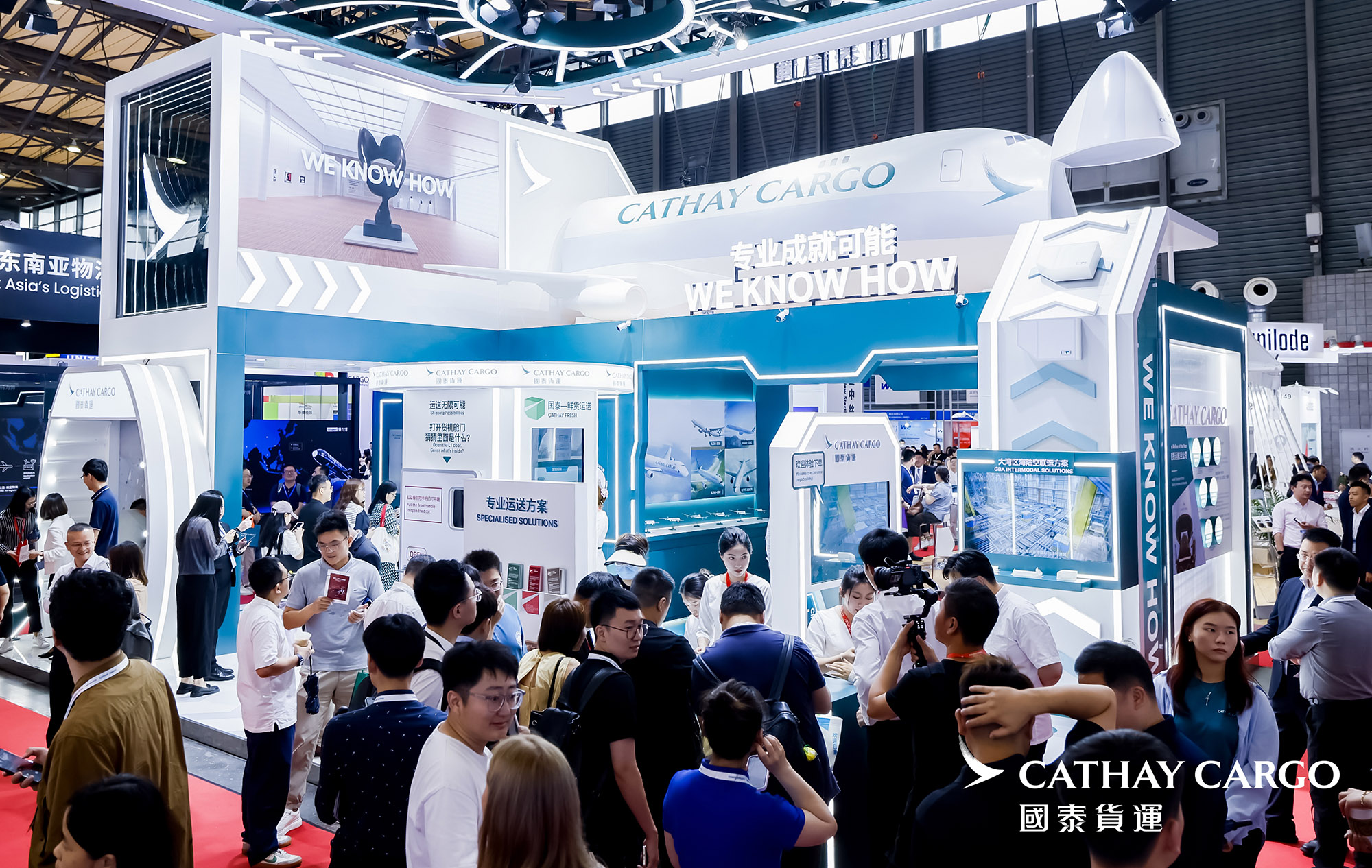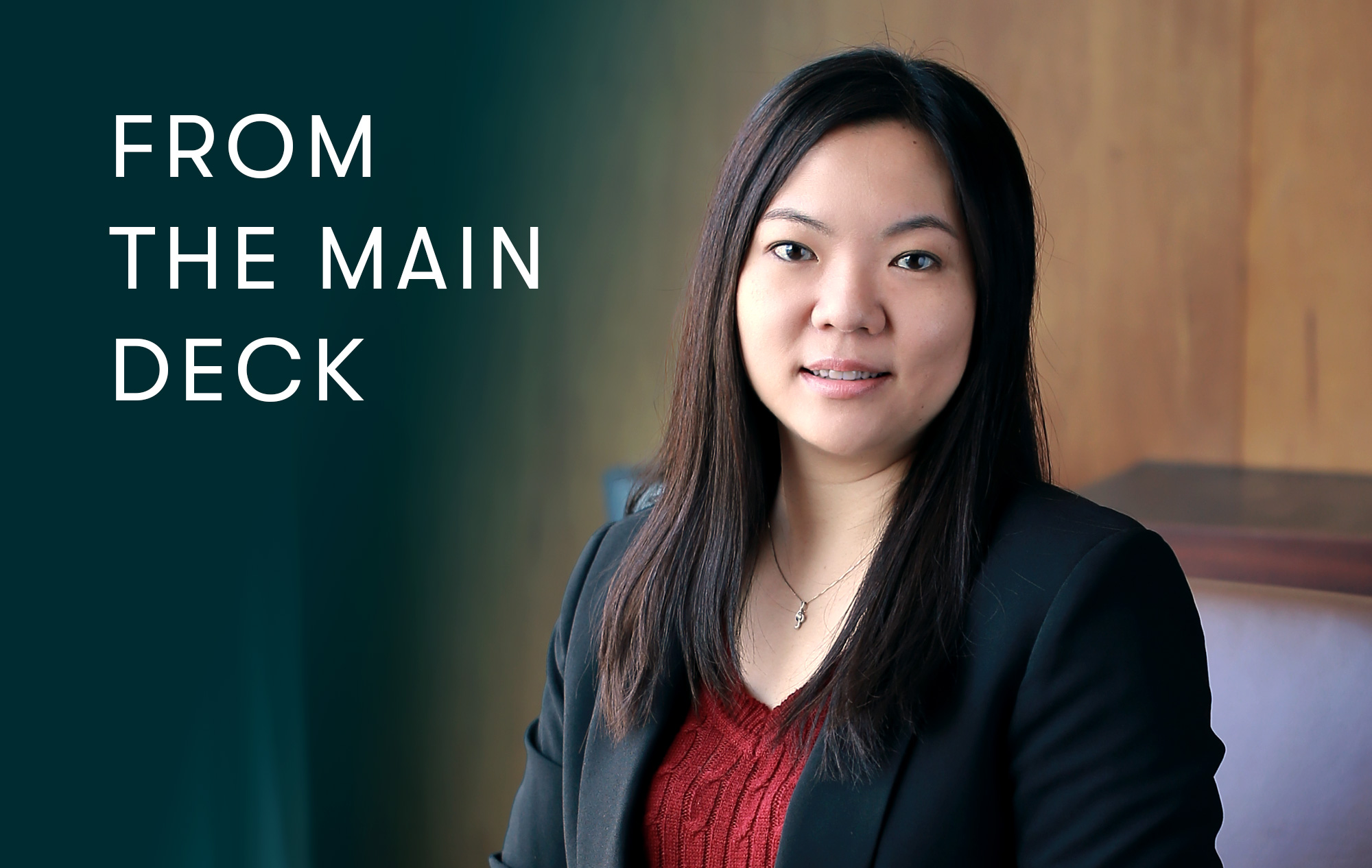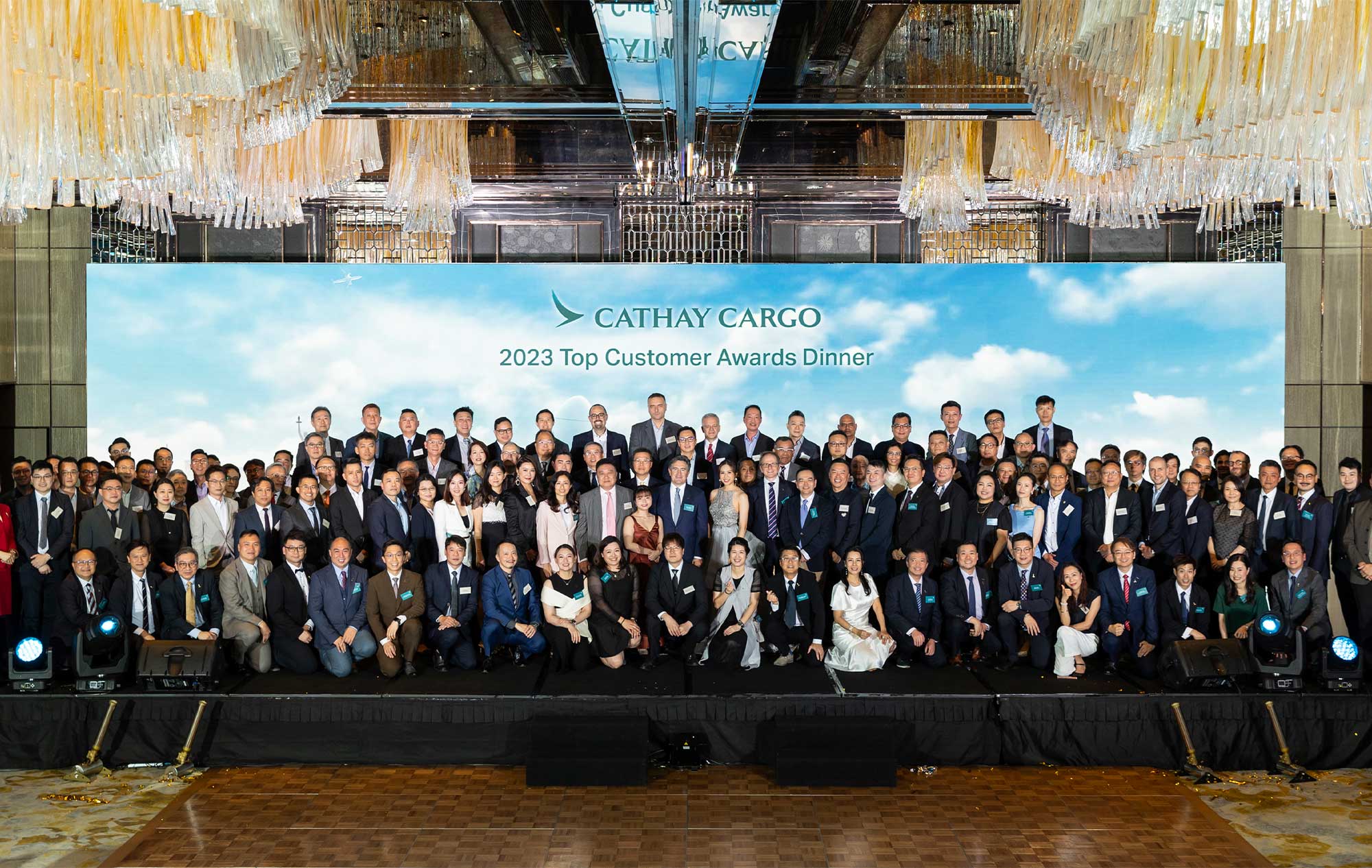Cathay Cargo took its messaging about digitalisation and sustainability out on the road to demonstrate its ‘We Know How’ brand credentials with contributions as panellists at the Cargo Tech Summit, held in Brussels this past September. The event, hosted by leading trade publication Air Cargo Next, brought together experts from across the air-cargo industry, including Cathay Cargo’s own Head of Cargo Global Partnerships Chris Bowden and Head of Cargo Digital Ingrid Lee, to talk about sustainability and global digital standards.
For Cathay Cargo, participating at these events serves two purposes. One is to outline its own initiatives directly to the industry – the second is to learn from the experiences of others, and to make contact with possible partners. ‘It was good to hear more of a European perspective at an event with so many airlines, trade bodies and start-up solution vendors,’ says Lee. ‘One of my co-panellists was from FIATA (International Federation of Freight Forwarder Associations), who looked after both the sea freight side of the logistics business for providers across 150 countries, so it was interesting to learn more about shared issues and approaches to industry standards across these modes.’
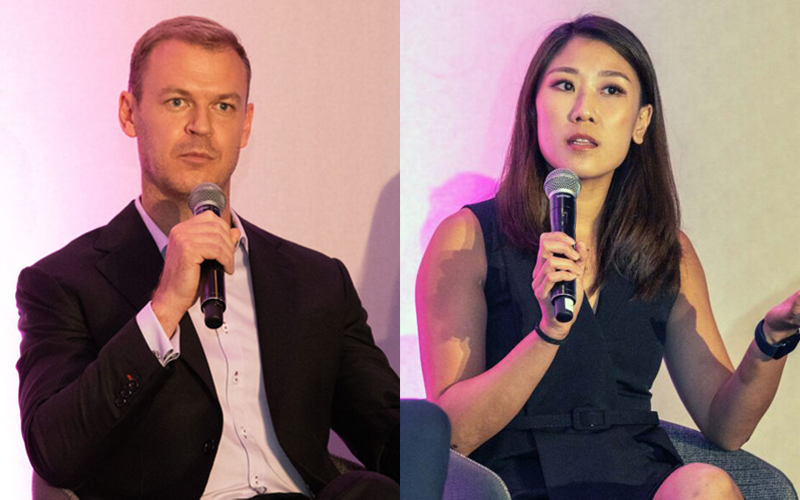
Bowden agrees, and his panel’s focus on sustainability enabled him to talk about Cathay Cargo’s commitments and initiatives like the Corporate Sustainable Aviation Fuel Programme and the wider Cathay Fly Greener programme that includes societally meaningful carbon offsets for cargo shipments. However, the technology needs to evolve if IATA’s commitment for aviation to be carbon neutral by 2050 is to be accomplished – the big step changes required in hydrogen and electric propulsion are still a way off. ‘You have people working together towards this grand goal, and it affects everybody,’ he said on the panel. ‘It’s one of the most inspiring spaces that I think that you can work in.’
He adds: ‘Events like this are about letting people know that we’re willing to have a conversation and willing to work together to find solutions that maybe haven’t been worked on yet or discovered, and the key sign that it was a success was that we stayed on stage afterwards to continue the discussions.’
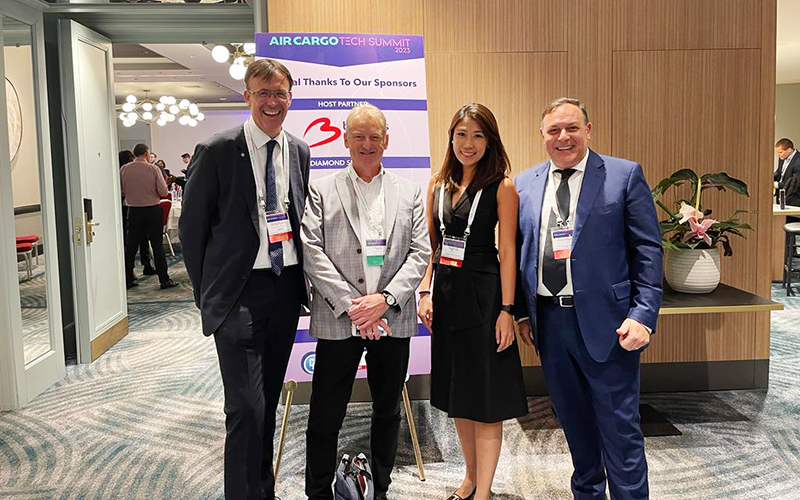
A look at digital data standards and records
Lee’s panel was just as engaging as they got to grips with industry standards, and IATA’s goal for ONE Record to be used by all of its members by 2026. While Cathay Cargo has adopted and is committed to ONE Record, developing access for customers using APIs to give greater visibility of the shipment journey, there is wider scepticism across the industry especially from SME-size forwarders, particularly as ONE Record was preceded by previous ‘standards’.
‘If industry standards keep changing, there is little attraction for smaller companies to invest in the standardisation of records,’ Lee said on the panel. ‘People are asking, is this the final, final stage, so I can actually invest in it and make the change? Or will next year see a TWO Record come out?’
In addition to this hesitancy, Lee also said that different customs authorities lack standardisation too and that industry stakeholders must come together to ‘digitise systems that are compatible with one another’. This goal is all the more so acute if a single waybill is to be able to transfer across modes, what with a trend towards intermodal shipments growing.
Looking back on the event, Lee enjoyed hearing the different perspectives, but remains convinced that technology remains key to ironing out any kinks on the journey to standardisation – and that it is achievable. ‘Hesitancy shouldn’t be a concern that stops us from doing anything because we’re worried about changes in the future, because there will always be changes,’ she says. ‘In our own journey, we are adopting the Agile methodology, which means a collaborative iterative approach that is phased and enables development, with flexibility built into solution design to accommodate and adapt to change when required as part of the normal process of business.’
Both standardisation and sustainability are long-term objectives for the air-cargo industry, but Cathay Cargo’s message is that the best way to start out is to start. ‘To get to the end points on these issues, we’ve got to take whatever realistic steps we can now to get the whole conversation going, and to make sure that the rest of the cargo ecosystem is pushing towards the same goal,’ says Bowden. ‘I think speaking at events like the Cargo Tech Summit are a good way of ensuring the conversation continues.’
Photo credit: Air Cargo Tech Summit




